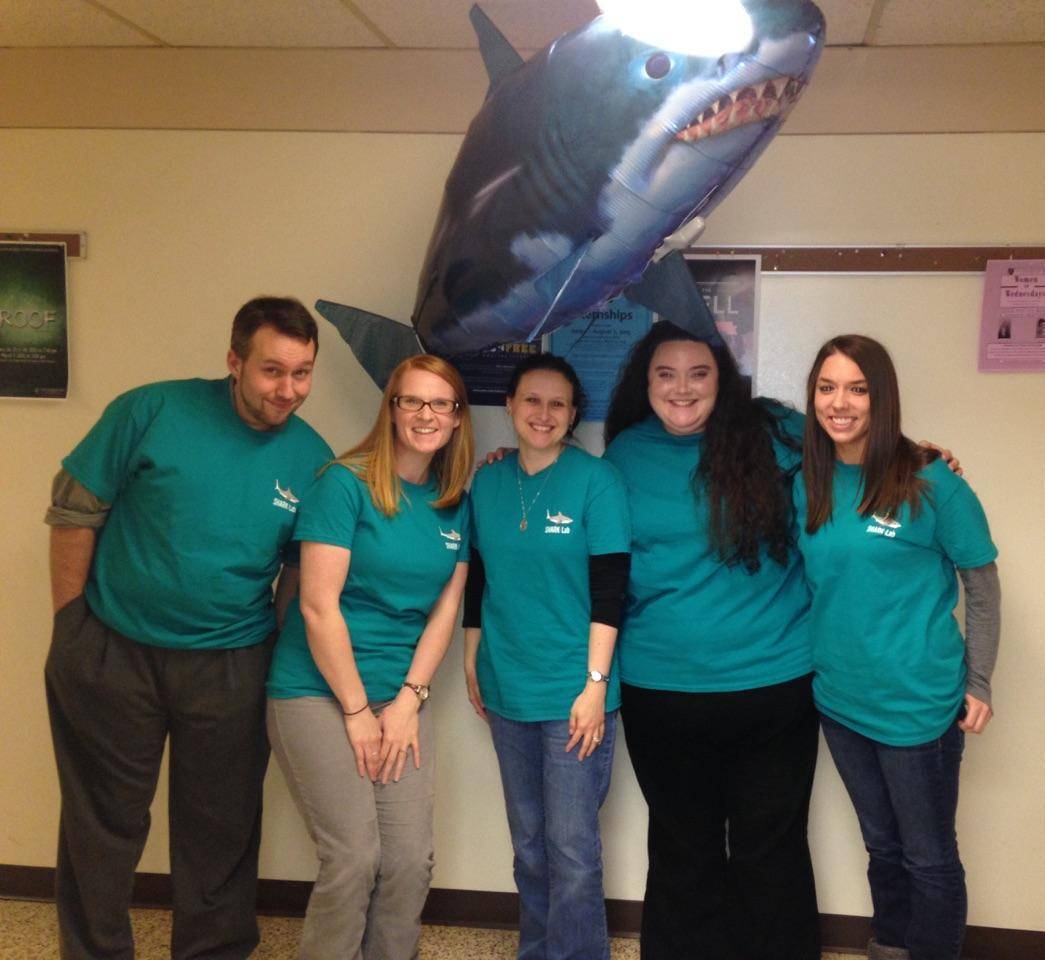Interested in undergraduate research? 
Undergraduate research assistants in the SHARK lab have been involved in a variety of projects and research responsibilities. These include:
- Collecting, coding, and cleaning data
- Recording and transcribing participant interviews
- Formatting datasets for analysis
- Running descriptive and other analyses for posters and presentations
- Creating posters for regional, national, and international conferences
- Participating in facilitated group reviews of manuscripts for peer-reviewed journals
- Discussion of current topics and issues in the field of forensic clinical psychology.
Some students have pursued completion of an Honors thesis through the Honors program at ETSU. If interested in this option, I require students to complete 1-2 semesters as a research assistant in the SHARK lab prior to initiating an Honors thesis.
Lab requirements: GPA of 3.5 or higher preferred, a grade of B+ or higher in my course if I was your course instructor, plan for how lab experience will prepare you for further graduate training, the ability to register for 1-3 credits of independent study (at the expectation of 3 work hrs/week per one credit), completion of an application, and an interview. Not all who meet these requirements will be selected, as it is a competitive process. I will typically advertise any open lab positions on PSYCTALK several weeks prior to the next semester's registration date.
Interested in graduate research?
Students interested in the Clinical Psychology PhD program at ETSU should visit the program's website for more information. If interested in becoming a part of the SHARK lab, please note that our program prioritizes both the applicant's fit with our programmatic emphasis on integrated care and rural mental health as well as the fit with an individual faculty mentor's area of research and clinical interests. Thus, in your application materials, please be sure to note both your fit with regard to programmatic aims as well as the areas of research associated with the SHARK lab. Applicants with interests in research and/or clinical careers are welcome. Graduate students in the SHARK lab can expect to be involved in a number of research projects, resulting in manuscripts, oral and poster presentations, and service to the field. Please visit the "people" section of this website to learn more about where SHARK lab graduates are currently employed, and the "research" section for examples of manuscripts co-authored with SHARK lab students.
Graduate students can expect one-on-one mentorship throughout their time at ETSU, with a range of opportunities to conduct research and clinical practice specific to their areas of interest within the broader aims of the SHARK lab. Relevant clinical training opportunities in the region that have been pursued by SHARK lab students include community placements associated with community corrections, persons with serious mental illness who are homeless, children in foster care or residential placements, integrated care clinics, and acute care rotations in community mental healthcare settings.